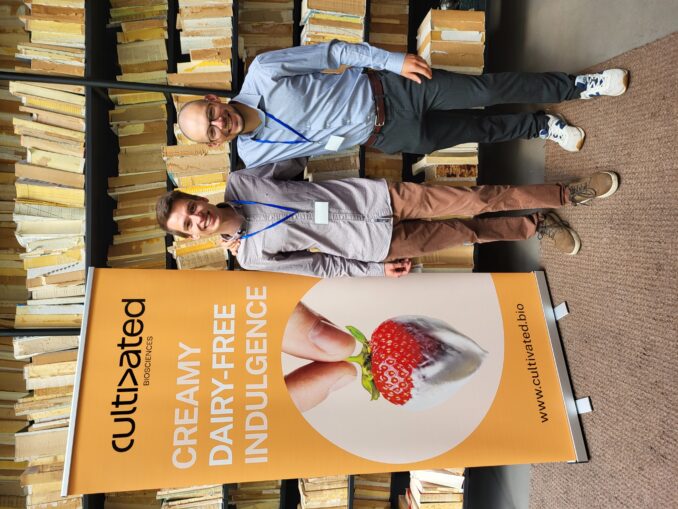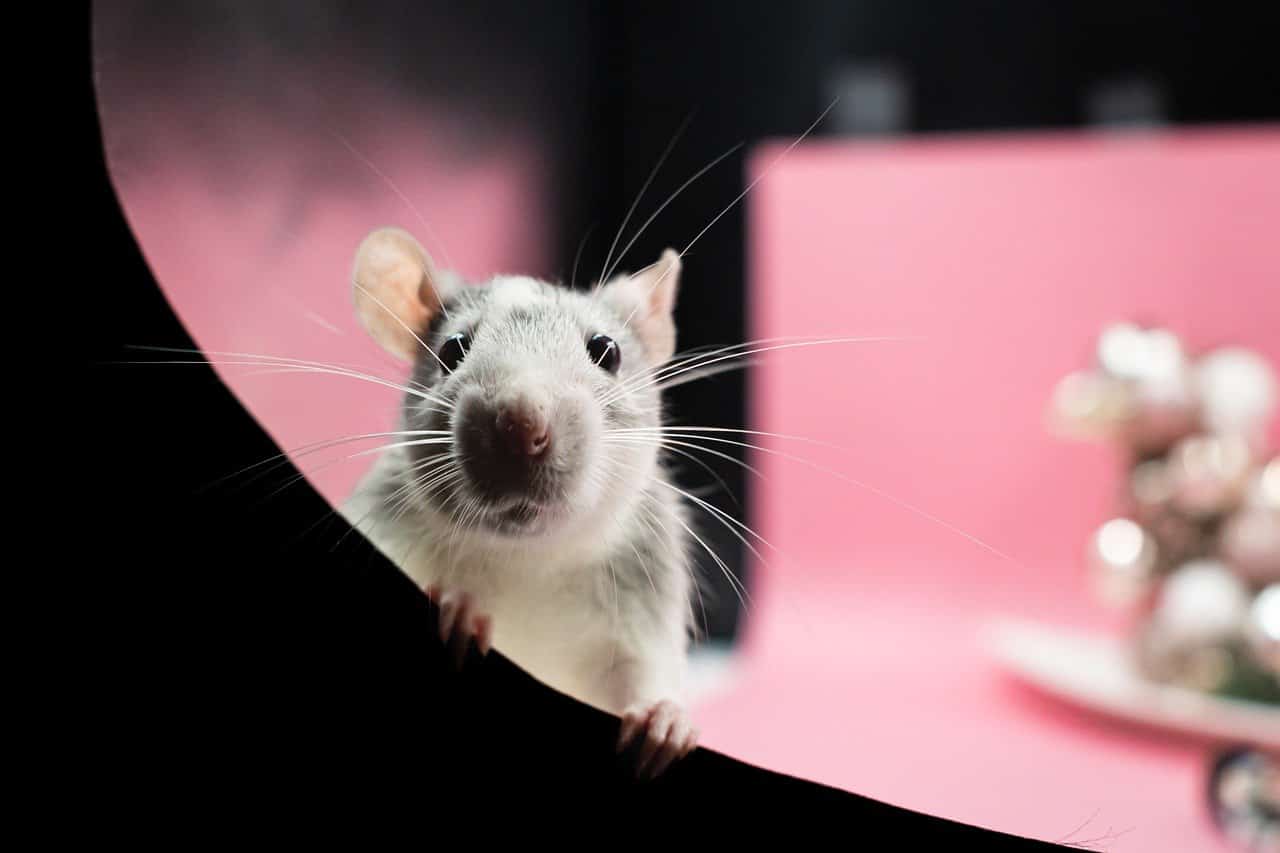
It looks like cow’s milk. The mouthfeel and texture are the same. But no cow is used in the production of this plant-based dairy substitute from Cultivated BIOSCIENCES. The Swiss start-up has developed a fermentation process that uses fats found in yeast. This creates a fat-like substance that forms the basis for an animal-friendly and sustainable alternative to milk, yogurt and cheese. In September, the start-up successfully raised an investment worth €1.5 million.
Fermentation
“We want to become one of the leading global players that is producing food from biomass fermentation. We aim to take an important step in the transition from agriculture-based food to fermentation-based food this way,” says Tomas Turner, co-founder of Cultivated BIOSCIENCES.
“By using non-genetically modified yeast in the fermentation process and then feeding that yeast, we are able to produce fat molecules. We extract the amount of fat that we need from that mass to get that creamy feeling. This also has similar nutritional values to dairy cream.” The start-up intends to use waste streams from food processing plants in the production of this alternative to cream. “This means that no agriculture or additional energy is needed to produce it,” Turner goes on to explain.

Protein transition
The start-up stems from Turner’s personal quest to find ways to “raise his impact.” Even as a child, Turner would try to convince his parents to eat more plant-based foods. Yet his father was not a fan of the taste of soy yogurt. “Still, I’ve always been actively involved in the ‘effective altruism‘ movement. A movement that makes use of reason and evidence so that it can help others as effectively as possible.” Turner learned about the alternative protein industry through people in that organization. He then came in contact with The Good Food Institute, an international NGO that seeks to accelerate the development of plant-based cultivation and fermentation.
Turner went on to study Materials Science and Engineering at the Ecole polytechnique fédérale de Lausanne (EPFL) in Switzerland. It was through The Good Food Institute that Turner completed an internship at the Swiss plant-based meat start-up company Planted Foods. It was there that he was inspired to explore fermentation in more depth as a way to contribute to the protein transition. The subject of his thesis consequently focused on the production of lipids – fats – in yeast.

Rethink Protein Challenge
While writing his master’s thesis, Turner had extensive contact with Wageningen University & Research (WUR) in the Netherlands. Researchers at the university are currently doing research on yeasts as an alternative to palm oil, among other things. A researcher drew Turner’s attention to the Rethink Protein Challenge, a student competition for the best idea or prototype that “provides 9 billion people with enough protein in a way that is healthy, affordable and good for our planet,” according to the website. Turner managed to find a teammate, WUR student Julia Martin, and submitted his yeast fermentation prototype to the competition. That submission heralded the start of the company Cultivated BIOSCIENCES.
The two worked over a five-month period on formulating a business case, during which time they received advice and coaching from experts from companies such as Lely, DSM and Unilever. Martin and Turner won the competition in the prototyping category. “That victory was a huge sign of appreciation for me. It basically proved that our solution addresses an area of need in industry. It confirmed for me that I should go ahead with it. Plus, it also raised my visibility. As a student, I was all of a sudden in contact with people who were willing to invest in my solutions.”

Approval
At one point, Turner thought about setting up the company in the Netherlands. Martin, however, declined to do that, so Turner went looking for another co-founder. He found one in Switzerland. “I met Dimitri Zogg six years ago while climbing a mountain in Gruyère, Switzerland. We kept in touch. Dimitri was the chair of YES-Europe, which stands for Young Leaders in Energy and Sustainability. My brother was vice-chair there for a while too. When I started looking for a co-founder, my brother pointed me in the direction of Dimitri.” A grant in Switzerland also enabled Turner to establish his company in Switzerland.

With the investment provided by Wingman Ventures, Turner and Zogg are fine-tuning and optimizing the bioprocess. ” We will soon start the validation process of our ingredient with several partners. We’re hoping for approval by early next year. Then with that approval, we can probably launch our product in America sometime in 2024.”
Owing to European laws and regulations, the launch in Europe is taking a bit more time, Turner notes. ” It takes a lot of safety tests in Europe. On one hand that’s good, on the other, it stifles innovation. Which is why we are launching the product in America first.”







